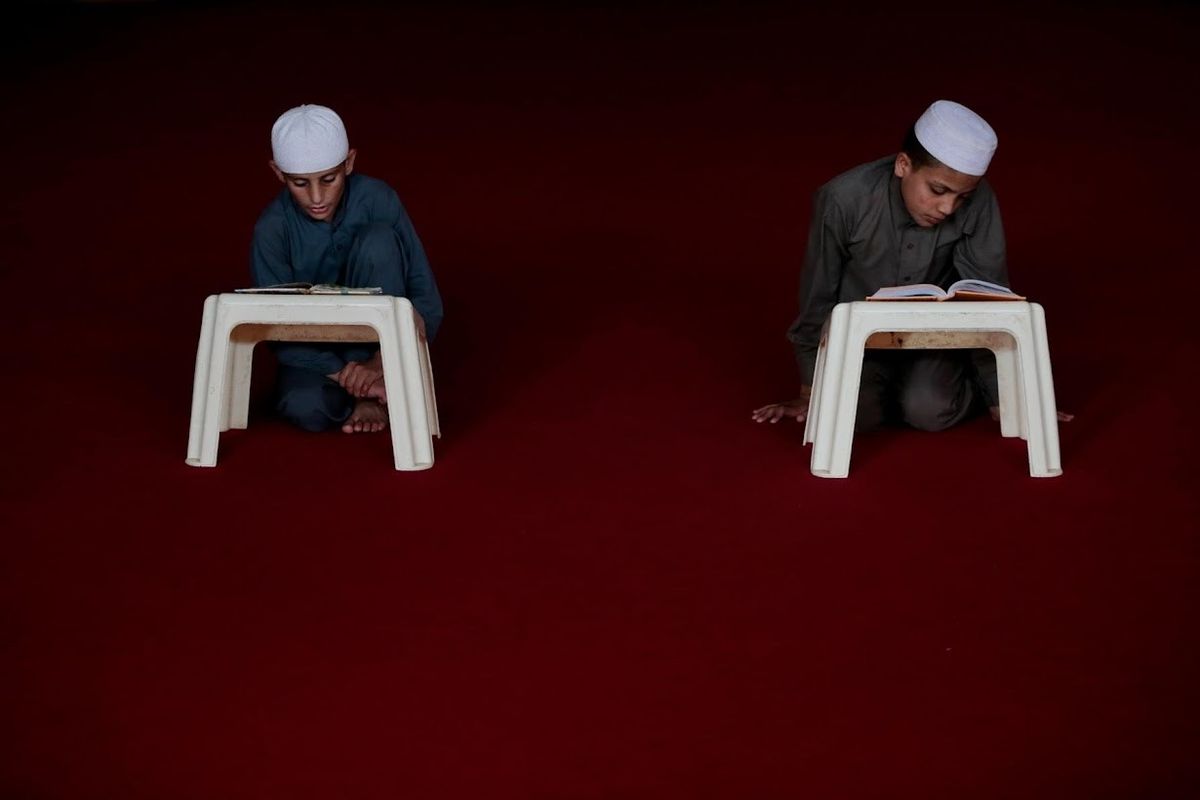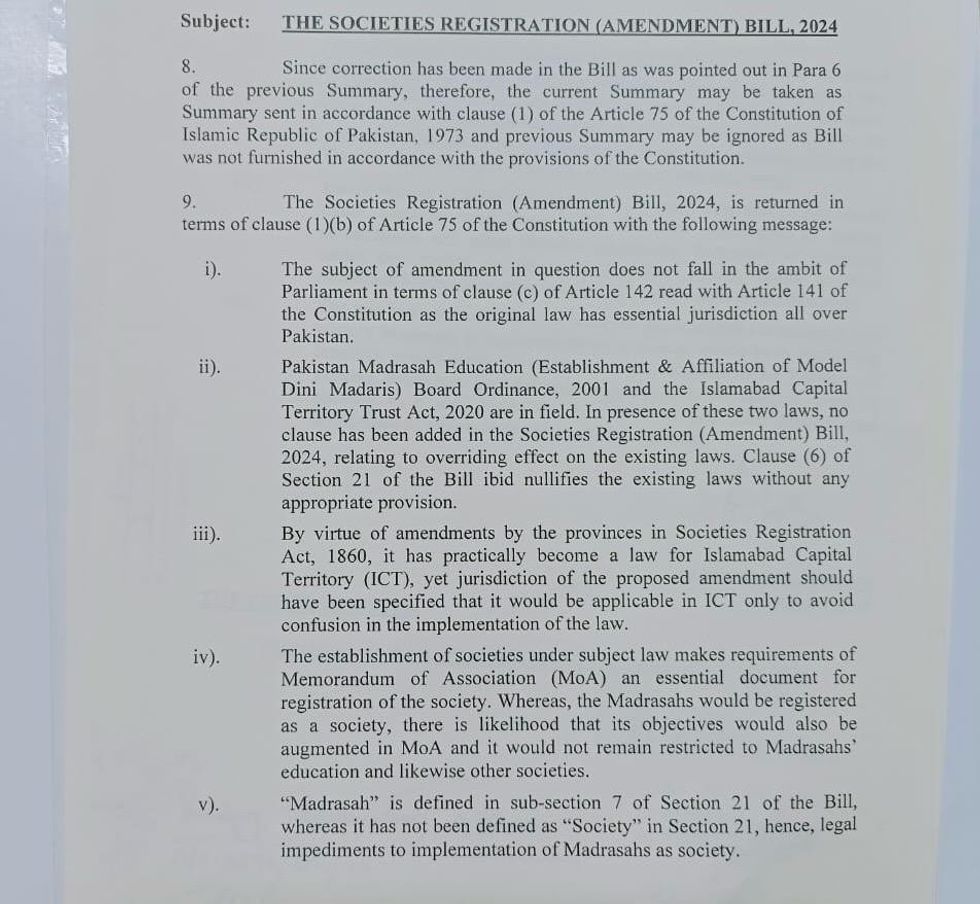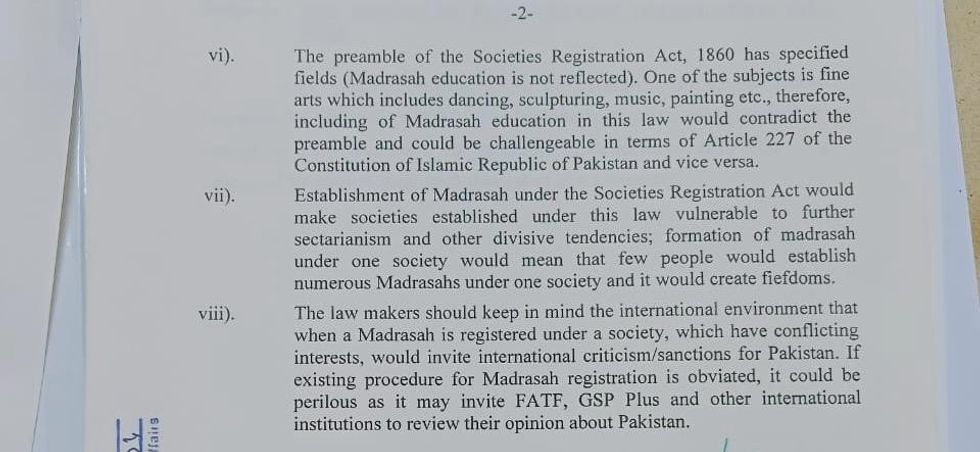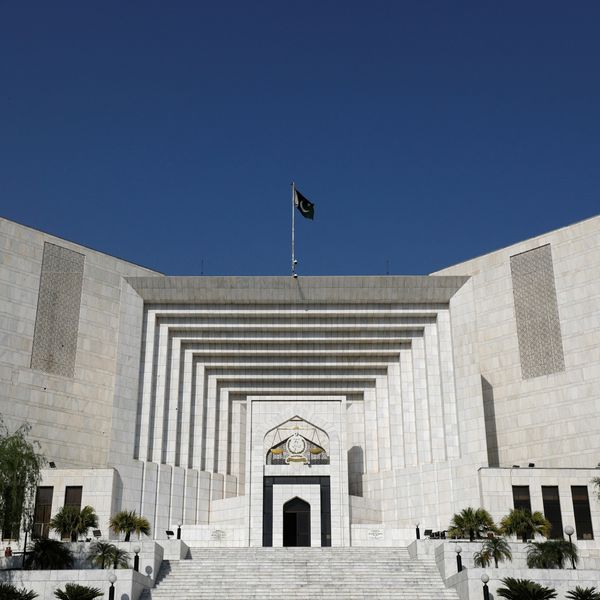Pakistan President warns changes to madrassa law could trigger int'l sanctions
Zardari reveals objections in an eight-point document for not signing off on the Islamic school reform bill

Javed Hussain
Correspondent
I have almost 20 years of experience in print, radio, and TV media. I started my career with "Daily Jang" after which I got the opportunity to work in FM 103, Radio Pakistan, News One, Ab Tak News, Dawn News TV, Dunya News, 92 News and regional channels Rohi TV, Apna Channel and Sach TV where I worked and gained experience in different areas of all three mediums. My journey from reporting to news anchor in these organisations was excellent. Now, I am working as a correspondent with Nukta in Islamabad, where I get the opportunity of in-depth journalism and storytelling while I am now covering parliamentary affairs, politics, and technology.

Students memorize the Quran at the Al-Nadwa Madrassa in Murree, Pakistan, Oct. 3, 2017.
Bill would have moved madrassa oversight from Education Ministry to 1860 Societies Act
Plan affects religious schools serving over 2.3 million students nationwide
Speaker's claim of "minor corrections" conflicts with extensive presidential concerns
Pakistan President Asif Ali Zardari's objections to a contested Islamic school reform bill were finally made public Friday, a day after the religio-political opposition party Jamiat Ulema-e-Islam-Fazl (JUI-F) formally demanded their release.
The eight-point document outlining objections to not signing off on the bill, obtained by Nukta, highlights concerns that the bill could invite scrutiny from global financial watchdogs and contradict existing Pakistani laws governing religious schools.


"Lawmakers should keep in mind the international environment as when a Madrasah is registered under a society, which have conflicting interests, [it] would invite international criticism/sanctions for Pakistan," the president's document states, warning that circumventing existing registration procedures "may invite FATF, GSP Plus and other international institutions to review their opinion about Pakistan".
The Societies Registration (Amendment) Bill, 2024, aimed to shift madrassa registration from the Education Ministry to the Societies Registration Act of 1860 - a move that has sparked debate within Pakistan's religious education community.
Among the president's technical objections is the bill's failure to address conflicts with existing legislation, including the Pakistan Madrasa Education Board Ordinance 2001 and the Islamabad Capital Territory Trust Act 2020. The document notes that no provisions were added to handle potential conflicts with these laws.
The president also highlighted definitional inconsistencies, pointing out that while 'Madrasah' is defined in the bill, 'Society' is not, creating "legal impediments to implementation of Madrasahs as society".
A particularly notable concern focuses on the potential misuse of the registration system. The document warns that "establishment of Madrasah under the Societies Registration Act would make societies established under this law vulnerable to further sectarianism and other divisive tendencies," leading to "few people [establishing] numerous Madrasah's under one society and it would create fiefdoms."
Confusing responses
The revelations come amid contradicting narratives about the bill's journey through Pakistan's legislative system.
National Assembly Speaker Sardar Ayaz Sadiq stated on Friday that the bill was initially returned only for clerical corrections, which seems to be contradicted by the extensive nature of the President's objections.
On the other hand, under Article 75 of Pakistan's Constitution, the President must sign a bill within 10 days of parliamentary approval, or return it once with recommendations. If the parliament then reapproves the bill, the President must sign within 10 days.
However, the bill, passed on October 21, was first held for what Senator Kamran Murtaza claims was 30 days, allegedly due to the president's Dubai trip.
It was then returned citing need for clerical corrections, and has now been returned again with extensive objections.
Speaking to Nukta, JUI-F spokesperson Aslam Ghauri called the president's objections "surprising", suggesting the presidency was acting under external pressure.
Ghauri criticized both the substance and process of the objections, noting they failed to include any suggested solutions - a standard practice when the president returns bills for amendment. He also questioned the procedural irregularities, saying the objections should have been sent directly to the National Assembly speaker.
"The president's objections are not within the period given in the Constitution," Ghauri said, adding that once initial objections were answered, there was no constitutional right to object again.
JUI-F frustrated
The JUI-F, which had made the bill's passage a condition for supporting October's crucial 26th Constitutional Amendment, noted that these official objections differ significantly from those previously raised by religious leaders opposing the reforms.
The bill passed parliament on September 21, giving the President a constitutional deadline of October 2 to either sign or return it. More than 45 days have elapsed since that deadline, creating legal ambiguity about the bill's status.
Party leader Maulana Fazlur Rehman had warned of potential protests after reviewing the President's objections, calling them "baseless" in discussions with Prime Minister Shehbaz Sharif and other ruling party leaders.
The JUI-F chief accused the government of "capitulating to international pressures" at the expense of Pakistan's sovereignty.
This development adds another layer to an already complex debate that has divided Pakistan's religious education community. Ten of the country's 15 major madrassa federations oppose the changes, representing institutions that serve over 2.3 million students nationwide.
The government faces mounting pressure from both sides, attempting to prevent international backlash while addressing JUI-F's concerns about what the party sees as a violation of political agreements made during the constitutional amendment process in October.







Comments
See what people are discussing